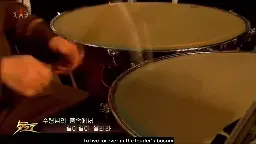"There was a dear house in my beloved hometown... Oh, but my beloved hometown has burned to the ground..." Korean War expressed in music at V-day concert (Eng subs) + history info in post
"There was a dear house in my beloved hometown... Oh, but my beloved hometown has burned to the ground..." Korean War expressed in music at V-day concert (Eng subs) + history info in post
Watch "Korean War expressed in music performances" on Streamable.

English subs and full video of concert uploaded by Phuong DPRK Daily.
In the first song, "Dear House in My Hometown", the singer refers to sowing seeds on the land given to them by the leader--this is in reference to the period immediately after Korea's liberation (1945) and prior to the war's escalation (1950), in which land reforms and various other reforms were carried out in Korea, through the People's Committees. This happened in the south as well, until the U.S. showed up, and reinstated many colonial-era authorities who set about overthrowing (and imprisoning and murdering) People's Committee members and replacing them with committees made of landlords, police, and businessmen, which eventually resulted in a near famine in the south and reinstitution of colonial-era grain collection policies, leading to peasants being beaten by cops for not meeting quotas. (More info here and here). In contrast, the northern People's Committees were able to continue with land reforms and other popular reforms without hinderance.
Quotes about the Korean War
We killed civilians, friendly civilians, and bombed their homes; fired whole villages with the occupants--women and children and ten times as many hidden Communist soldiers--under showers of napalm, and the pilots came back to their ships stinking of vomit twisted from their vitals by the shock of what they had to do. -- U.S. Naval Captain Walter Karig, "Battle Report: The War in Korea"
We went over there and fought the war and eventually burned down every town in North Korea ... some way or another, and some in south Korea, too. We even burned down Pusan—an accident, but we burned it down anyway. The Marines started a battle down there with no enemy in sight. Over a period of three years or so, we killed off—what—twenty percent of the population of Korea as direct casualties of war, or from starvation and exposure? -- U.S. Air Force General Curtis LeMay, "Strategic Air Warfare"
What I saw Americans doing in Korea shook me to my heels. I suppose all my life I’ve been listening to propaganda about America being a civilised nation and some of this must have sunk in. Somehow, I never quite thought of Americans doing exactly what the Nazis did until I saw it with my own eyes. ... A thousand tons of bombs; a town obliterated; over 4,000 casualties in all; tens of thousands made homeless and bereaved—all to damage a rail-track. Does it make sense? This is bombing in the fashion that no British town ever met. I saw Coventry and I was in London all through the ‘blitz and I saw Wonsan after these raids. It was far worse than the worst the Nazis ever did. -- British journalist Alan Winnington, "I Saw the Truth in Korea"
As Winnington describes, U.S. recruits in the Korean war were, in large part, apparently clueless teens and young men who had joined up after the end of WWII to "see the world" and could not provide straight answers for why exactly they were bombing north Korea's villages and turning the country into a smoldering wasteland. As Winnington reported, after interviewing U.S. soldiers captured by the north and asking them why they were in Korea: "Most said: 'I don’t know.' Some said: 'It’s something to do with the United Nations, they told us.'"
In contrast, Koreans across the whole country understood deeply and personally what they were fighting for:
The ghastly destruction of homes and lives that has gone with it has made the whole nation furious. Even former apologists of America are now their bitter enemies. On roads you can meet men by the hundred who tell you: “My home was bombed in . . . so I sent my wife and children to relatives in the country and I’m oil to volunteer.” In Wonsan, the wife and children of a worker, Wan Wun Chu, were killed in a raid while he was at work. “They are dead and I cannot call them back,” he said. “If I die it is little now. But I would give my last drop of blood to get revenge and drive those murdering dogs from our country. They tell me my place is in production and I will work my fingers to the bone to produce more for the army.”
As another U.S. soldier interviewed by Winnington said: "The civilian population hate us and they are ready to go with the North."
This observation lines up with what the CIA commented in 1950, when the north's army took control in Seoul: "Over 50% of Seoul's students are actively aiding the Communist invaders, with many voluntarily enlisting in the Northern Army" and that among Seoul's population, "the working class generally supports the Northern Koreans, while merchants are neutral and the intelligentsia continue to be pro-Southern," adding that the streets of Seoul were "crowded, especially with youths engaging in Communist demonstrations."
I think the songs at this concert give a good look into DPRK's view of the events and how this history is perceived there. Many musical performances in DPRK cover this historical timeline, depicting the liberation struggle, the post-liberation reforms, the wartime period, and the post-war reconstruction period. Other concerts often depict the strengthening of their defense capabilities and the advancing of socialism and making Korea strong and prosperous. Other songs tend to focus on their friendly relations with other countries, including songs about shared history and hopes with the south (this concert is an example of that).